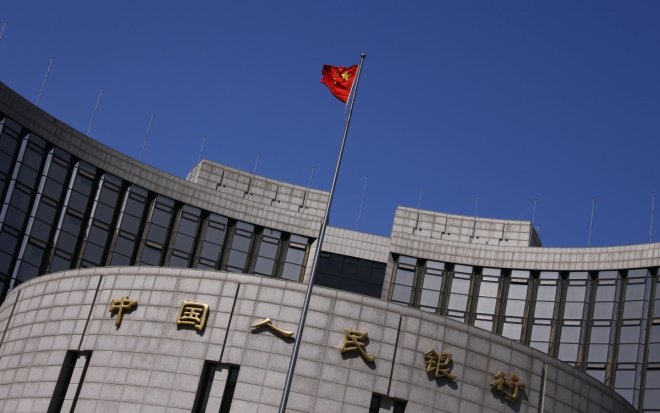
China surprised global markets on Friday (Feb 3) with a hike in short term money market rates while analysts said the central bank policy amid property market overheating contains a strong message.
The PBOC (People's Bank of China) raised the 7-day, 14-day and 28-day reverse repurchase agreements (reverse repo rates) by 10 basis points each to 2.35%, 2.5% and 2.65% respectively.
It was in the previous week, the apex bank raised the medium-term rates.
It is the first increase since 2013 for the two shorter tenors, and the first move since 2015 for the 28-day contracts.
Some analysts pointed out that the 7-day reverse repo rate is the unofficial policy rate although the PBoC doesn't like to explicitly say that.
The sudden rate move came after the week-long Lunar New Year holidays is a sign of gradual tightening, and is aimed at containing corporate debt, an overheating housing market and further capital outflows.
The benchmark lending rate that was last cut in 2015 October was left unchanged this time at 4.35%.
A Bloomberg article said that the PBOC is mid way through a policy overhaul, with officials in the past signaling a corridor is evolving where repo rates guide the short end and SLF rates act as the ceiling.
"A rate hike on the first working day after the New Year holiday signals a new attitude," said Raymond Yeung, chief greater China economist at Australia & New Zealand Banking Group Ltd. in Hong Kong.
"The PBOC never makes it clear, but the 7-day reverse repo rate is the unofficial policy rate, a significant benchmark for interbank rates."
Interest rate derivatives reacted to the news although the Chinese yuan was little moved against the dollar.
The one-year interest-rate swaps climbed as much as 12 basis points to 3.43%, Bloomberg said.
"The fact that the whole yield curve rose shows the market is concerned about further deleveraging," said Frances Cheung, Hong Kong-based head of rates strategy for Asia ex-Japan at Societe Generale SA.
China PMI
Earlier on the day, an IHS Markit release showed that China's manufacturing sector continued to slow in January, while inflationary pressures remained sharp.
The Caixin General Manufacturing Purchasing Managers' Index (PMI) edged down to 51.0 from December's 47-month record of 51.9.
A reading above 50 indicates expansion, while a reading below 50 represents contraction.
The release said output and new orders increased at weaker rates amid a further reduction in employment while new export work rose at the fastest pace since September 2014.
Inflationary pressures remained as input costs and output charges continued to increase at rates scarcely seen throughout the past five years.
Still, companies remained optimistic towards future growth prospects, and expressed the highest degree of optimism towards the 12-month business outlook since July 2016, according to the survey.








